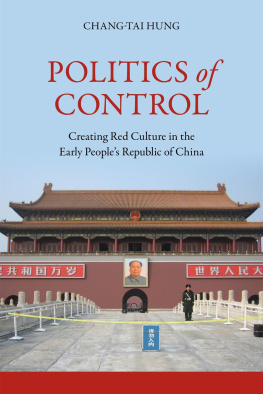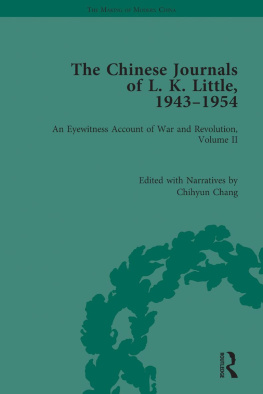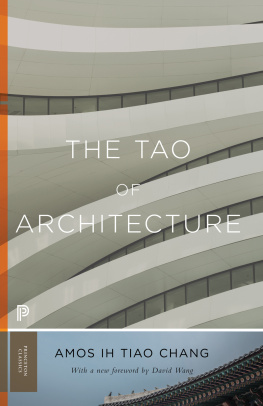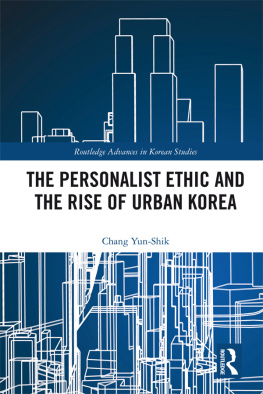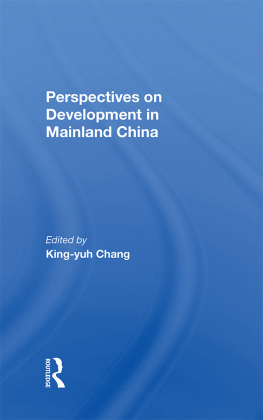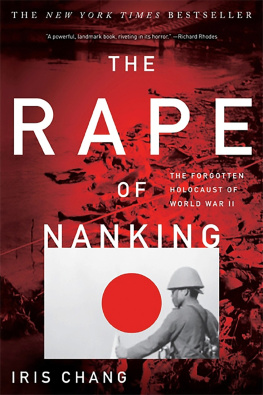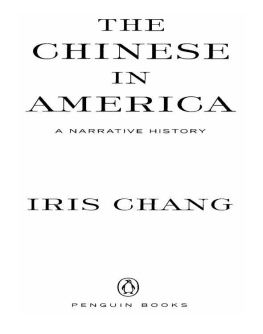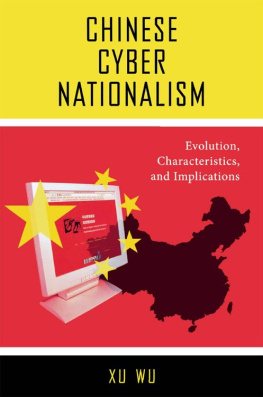Li Hung~chang and Chinas Early Modernization
Li Hung-chang at Tientsin. (From Mrs. Archibald Little, Li Hung-chang: His Life and Time. London: Cassell, 1903.)
First published 1994 by M.E. Sharpe
Published 2015 by Routledge
2 Park Square, Milton Park, Abingdon, Oxon OX14 4RN
711 Third Avenue, New York, NY 10017, USA
Routledge is an imprint of the Taylor & Francis Group, an informa business
Copyright 1994 Taylor & Francis. All rights reserved.
No part of this book may be reprinted or reproduced or utilised in any form or by any electronic, mechanical, or other means, now known or hereafter invented, including photocopying and recording, or in any information storage or retrieval system, without permission in writing from the publishers.
Notices
No responsibility is assumed by the publisher for any injury and/or damage to persons or property as a matter of products liability, negligence or otherwise, or from any use of operation of any methods, products, instructions or ideas contained in the material herein.
Practitioners and researchers must always rely on their own experience and knowledge in evaluating and using any information, methods, compounds,or experiments described herein. In using such information or methods they should be mindful of their own safety and the safety of others, including parties for whom they have a professional responsibility.
Product or corporate names may be trademarks or registered trademarks, and are used only for identification and explanation without intent to infringe.
Library of Congress Cataloging-in-Publication Data
Li Hung-chang and Chinas Early Modernization
edited by Samuel C. Chu and Kwang-Ching Liu
p. cm
East Gate Book
Includes bibliographical references and index
ISBN l-56324-242-7(c); ISBN l-56324-458-6(p)
1. ChinarHistory18611912.
2. Li, Hung-chang, 18231901.
I. Chu, Samuel C., 1929
II. Liu, Kwang-Ching, 1921
DS761.2.L5 1993
951.035dc20
93-31417
CIP
ISBN 13: 9781563244582 (pbk)
ISBN 13: 9781563242427 (hbk)
Contents
Kwang-Ching Liu
Kwang-Ching Liu
Kwang-Ching Liu
David P. T. Pong
Yuen-sang Leung
Richard J. Smith
Key-Hiuk Kim
Edwin Pak-wah Leung
Ming-te Lin
Thomas L. Kennedy
Chi-kong Lai
Chia-chien Wang
Samuel C. Chu
Photographs:
Li Hung-chang at Tientsin, frontispiece.
Most of the papers in this volume were first presented in two panels devoted to Li Hung-chang at the 1987 annual meeting of the Pacific Coast Branch of the American Historical Association (AHAPCB). At this conference the two panel discussants, Thomas Kennedy and Richard Smith, greatly enriched our efforts. Immediately thereafter Liu presented the Chinese version of his introductory chapter at the conference on the Self-strengthening Movement at the Institute of Modern History, Academia Sinica, in Taiwan, where he benefited from the reactions of the conference participants.
Yuen-sang Leungs chapter was added at the suggestion of Liu, while Chu suggested the inclusion of two of Lius earlier published articles. While the articles were being published in Chinese Studies in History, we asked Thomas Kennedy and Richard Smith if they would like to join us in producing this book version. They responded, and we are fortunate to have their contributions.
In the completion of this book many have inspired and assisted us: our teachers, who first gave us the professional training and acted as role models, and to whom we dedicate this work; our colleagues, our students, and our families and friends. Other scholars who helped us in various ways to improve this study include Joshua Fogel, Guan Jie, James Hsiung, Akira Iriye, Marius Jansen, Bonnie Oh, Qi Qizhang, and C. Martin Wilbur.
Grateful acknowledgments for permission to reprint are hereby tendered to the Harvard Journal of Asiatic Studies for chapter 2 (vol. 30 [1970], pp. 545), the University of California Press for chapter 3 (Approaches to Modern Chinese History, ed. Albert Feuerwerker et al. [1967], pp. 68104), and the Center for Chinese Studies (Taipei) for chapter 5 (Chinese Studies, vol. 4 [1986], pp. 31531). The Institute of Modern History of the Academia Sinica in Taipei published earlier versions of the Introduction (Proceedings of the Conference on the Selfstrengthening Movement in Late Ching China, 18601894 [1988], pp. 112133) and the Conclusion (Newsletter for Modern Chinese History, no. 6 [1988], pp. 12035). We are grateful to the Institute for permission to republish the two chapters in their revised form.
Since several of the chapters in this volume have appeared earlier, as editors we have not attempted to adopt uniform style for the entire volume, but have sought only consistency within each chapter.
In the preparation of the manuscript, Marjorie Haffner did the typing of the many drafts, with partial assistance from Janice Gulker. Our thanks to both. Technical and clerical services were also rendered by Constance Berroteran, Xiaoqi Wu, and Cynthia Fowler.
Finally, the co-editors wish to acknowledge the support of Yu-ning Li, editor of Chinese Studies in History, who invited us to be guest editors of the special issues devoted to Li Hung-chang, and that of Douglas Merwin, Ana Erlic, Angela Piliouras, and Rita Bernhard of M. E. Sharpe, our publisher. They have improved this work. All remaining errors and imperfections are the responsibilities of the authors and the editors, respectively.
This work is dedicated to the memory of John K. Fairbank and Franklin L. Ho, and to Wing-tsit Chan and C. Martin Wilbur.
Samuel C. Chu
Ohio State University
Kwang-Ching Liu
University of California, Davis
Samuel C. Chu, Professor of History
Ohio State University
Thomas L. Kennedy, Professor of History
Washington State University
Key-Hiuk Kim, Professor of History and Director of General Education
Pohang Institute of Science and Technology, Korea
Chi-kong Lai, Lecturer in History
University of New England, Armidale, New South Wales, Australia
Edwin Pak-wah Leung, Professor of Asian Studies
Seton Hall University
Yuen-sang Leung, Associate Professor of History
California State University, Los Angeles
Ming-te Lin, Research Fellow
Institute of Modern History, Academia Sinica
Kwang-Ching Liu, Professor of History Emeritus
University of California, Davis
David P. T. Pong, Professor of History
University of Delaware
Richard J. Smith, Professor of History
Rice University
Chia-chien Wang, Professor of History
National Taiwan Normal University
Part I
Introduction
1
______________________________________________________________________________


